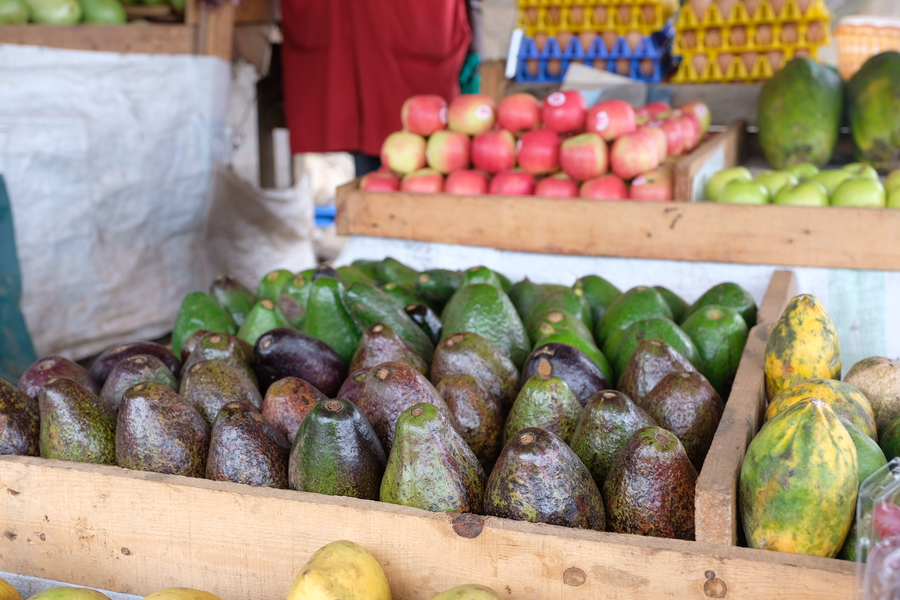
Avocados are sold in the market in Nairobi, kenya. (Xinhua/Yang Zhen)
The opening up of the Chinese market has spurred an avocado boom in many villages across Kenya which now can access the huge Chinese consumption market.
NAIROBI, Jan. 14 (Xinhua) -- Avocado trees have been grown in Kenya by many smallholder farmers, but not for large-scale commercial purposes.
The trees would be grown mainly to provide shed and beautify homes and once a year, they would yield fruits that would be consumed or sold locally.
But this situation would be no more. Thanks to the 2019 signing of a trade deal between Kenya and China, the Asian nation opened up more market for the fruits from east Africa's biggest economy.
The opening up of the Chinese market has spurred an avocado boom in many villages across Kenya, in particular in Murang'a, central Kenya.
Some farmers, who have more trees or larger farms, sell their fruits to the nearby Kakuzi firm, which is one of the exporters to the Chinese and European markets.
"These days avocados are a very important crop here because of the new market. As long as you have the Hass variety, then you will make money," said Stephen Kingori, a farmer in Murang'a county.
The farmer has five avocado trees at his home and has planted more.
Over the years, he never cared about the trees as he would leave them to grow taller and spread to have many branches.
And wherever they produced fruits, he would harvest and sell at a local market.
This changed last year when word spread Kenya and China had signed a deal, and he started seeing buyers come looking for fruits.
He prunes his trees and sprays them when they flower with foliar fertilizer to curb flower abortion and diseases.
"I would never care initially when the fruits dropped but now it hurts me. The reason why I take care of the trees is because I know I am losing money," he said.

File photo shows a local farmer attended to avocado tree seedlings in Thika, 40 kilometers northeast of Nairobi, capital of Kenya, Jan. 27, 2014. (Xinhua/Allan Muturi)
At the local markets, Kingori would sell each fruit at as low as 5 shillings (0.05 U.S. dollars) to consumers.
"The prices were so low but I had no choice because it was better than letting the fruits rot on the farm. But the new buyers are now offering between 0.15 dollars and 0.20 dollars per kilo of fruits," he said.
Caroline Karimi, another smallholder farmer in Murang'a, said avocado has become a money crop thanks to the growing market.
She sells her produce to a buyer from a company in Nakuru, northwest of the capital Nairobi, who buys for the Chinese market.
"The company processes and freezes them for the Chinese market. Initially, the only major market was Kakuzi firm which exported them to Europe, but we are now happy with the new development," she said.
The two farmers have planted more Hass avocado trees for the production of more fruits as the market expands.
Beatrice Macharia of GrowthPoint, an agro-consultancy, noted that there are two varieties of avocados, the Fuerte and Hass variety but the latter is the most sought after because of its high nutrients.
"Avocados for years have been ignored by the small farmer and in many villages, some of them would be fed to cattle but things have changed following the new market. It is now a very high-value crop," she said, adding that the grafted trees yield more, over 1,000 fruits in a season.
Kenya signed a deal with China in April 2019 to export frozen avocados to the Asian nation. ■



